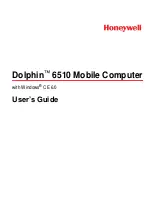
© Xiamen RGBlink Science & Technology Co., Ltd.
Ph: +86 592 5771197 | [email protected] | www.rgblink.com
50
●SC
:
(Subscriber Connector), also known as the square connector was also created by the Japanese company – Nippon
Telegraph and Telephone. SC is a push-pull coupling type of connector and has a 2.5mm diameter. Nowadays, it is used
mostly in single mode fiber optic patch cords, analog, GBIC, and CATV. SC is one of the most popular options, as its
simplicity in design comes along with great durability and affordable prices.
●LC
:
(Lucent Connector) is a small factor connector (uses only a 1.25mm ferrule diameter) that has a snap coupling
mechanism. Because of its small dimensions, it is the perfect fit for high-density connections, XFP, SFP, and SFP+
transceivers.
●FC
:
(Ferrule Connector) is a screw type connector with a 2.5mm ferrule. FC is a round shaped threaded fiber optic
connector,mostly used on Datacom, telecom, measurement equipment, single-mode laser.
●ST:
(Straight Tip) was invented by AT&T and uses a bayonet mount along with a long spring-loaded ferrule to support
the fiber.
●USB:
Universal Serial Bus is a standard that was developed in the mid-1990s that defines cables, connectors and
communication protocols. This technology is designed to allow a connection, communication and power supply for
peripheral devices and computers.
●USB 1.1
:
Full–Bandwidth USB, specification was the first release to be widely adopted by the consumer market. This
specification allowed for a maximum bandwidth of 12Mbps.
●USB 2.0
:
or Hi–Speed USB, specification made many improvements over USB 1.1. The main improvement was an
increase in bandwidth to a maximum of 480Mbps.
● USB 3.2
:
Super Speed USB with 3 varieties of 3.2 Gen 1(orig
i
nal name USB 3.0), 3.2Gen 2(original name USB 3.1), 3.2
Gen 2x2 (original name USB 3.2) with speed up to 5Gbps,10Gbps,20Gbps respectively.
USB version and connectors figure:
Type
A
Type B
Mini
A
Mini
B
Micro-
A
Micro
-B
Type C
USB 2.0
USB 3.0
USB
3.1&3.2
●
NTSC:
The colour video standard used in North America and some other parts of the world created by the
NationalTelevision Standards Committee in the 1950s. NTSC utilizes an interlaced video signals.





































